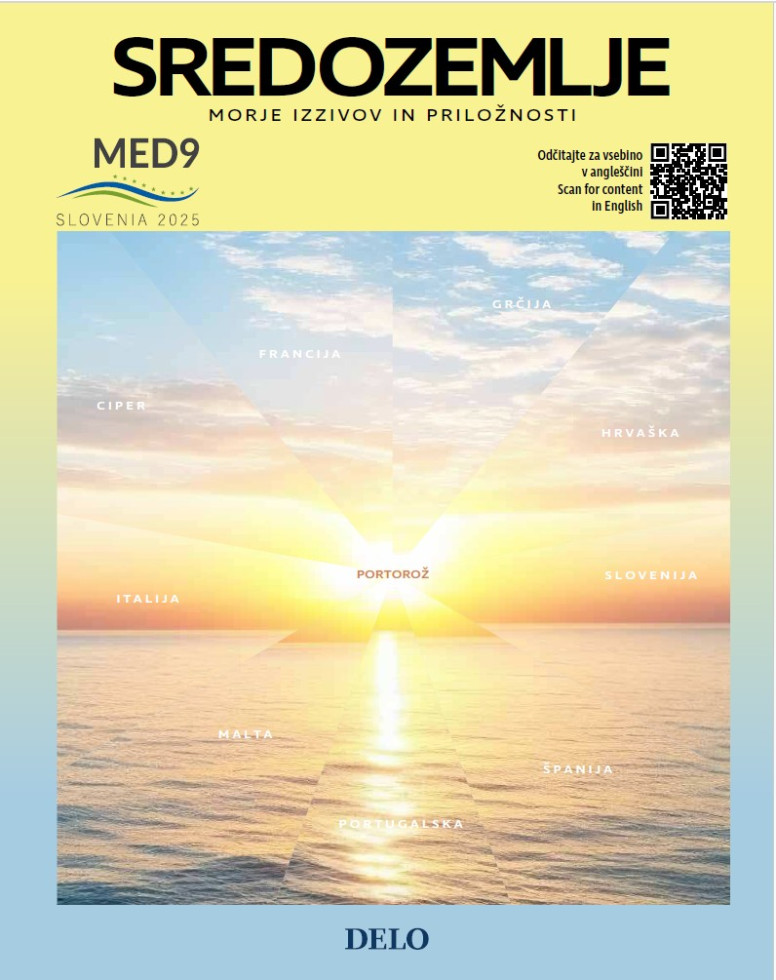A decade later, the crisis has subsided – and some lessons have even been learned
The same was true this time: in the first eight months of 2025, 112,000 people entered Europe illegally – 21 percent fewer than in the previous year. Even more remarkable is the 52 percent decrease compared to the same period in 2023, when 231,000 people landed on Europe's shores or crossed its borders.
However, the number of migrants is not decreasing as a result of any change in the underlying causes of migration. Countries such as Afghanistan and Eritrea remain repressive. Others, such as Sudan and the Sahel, are still bleeding in civil wars or violent uprisings. Bangladeshis and Egyptians – two of the nationalities most frequently crossing Europe's borders irregularly, with many doing so in search of employment – continue to face widespread poverty.
According to The Economist, the number of illegal entries into Europe is decreasing because the EU is testing new ways to prevent them. Many believe the results to be encouraging. However, some methods may be problematic and contrary to the EU's core values, which – through strict measures – seek to keep migrants as far as possible from the shores of Mediterranean countries.
Fewer migrants does not mean fewer organised smugglers
Petar Rosandić, an Austrian migrant rights activist and the founder and president of the non-governmental organisation SOS Balkanroute, also has a refugee background, having fled the war in Croatia with his family as a child. He became well known in Austria and across Europe when a court in Austria dismissed an action against SOS Balkanroute. By highlighting the existence of an illegally operating Austrian prison for refugees in Bosnia and Herzegovina, the facility being reminiscent in its functioning of the US camp at Guantanamo Bay in Cuba, the organisation succeeded in securing its closure.
Being well acquainted with conditions on the Balkan section of the migration route, he is able to assess the current state with relative accuracy and is convinced that the official data of the European Border and Coast Guard Agency (Frontex), showing a significant decrease in the arrival of new migrants, are correct. He also warns that smuggling structures are gaining in strength, illustrating this with the example of Bihać in Bosnia and Herzegovina, where human smugglers, in addition to the usual services of their networks, also offer migrants organised accommodation.
"It is difficult to make a definitive forecast of everything that will happen with migration in our part of Europe in the future. A great deal depends on the number of people who will continue their journey from Turkey and Greece. As it is known, sizeable groups of people from Sudan have recently reached the region, for example the island of Crete. And with more groups coming from Libya, Tunisia and the like, it is difficult to predict the future movements of these people," Rosandić states.
According to his assessment, European reinforced border management has made migrants increasingly vulnerable to the criminal networks of smugglers, which remain their only entry point into the European Union. "On the other hand, if they choose not to use the services of such smuggling networks and attempt to reach Europe on their own, they risk police batons and the all-too-familiar violence," Rosandić adds.
As a former refugee, he takes his activism very seriously. He constantly emphasises that figures and statistics always represent real people – individuals forced to leave their homes due to war, repression or poverty. Ibrahim Razul, now the coach of the women's team of the Austria football club in Klagenfurt, is a good example of how such people can enrich society. According to Petar Rosandić, it took as many as 51 violent pushbacks on the Balkan route from him to finally succeed in reaching Austria, also with the help of SOS Balkanroute.
The economic migrant: from unwelcome outsider to sought-after guest
The so-called migrant crisis is much more intertwined with economic developments than it may appear on the surface. The start of the crisis, more than a decade ago, followed the European sovereign debt crisis. "The anxiety which followed the grave economic situation of that time was fuelled by the prevailing refrain that we were heading towards bankruptcy – and heaven forbid a foreigner should express the wish to come here to work." An economic migrant was perceived as a menacing category, as someone trying to take away our very livelihood. At that time, it was only possible to enter Europe as a refugee, namely on humanitarian grounds," Slovenian activist Miha Blažič explains, outlining the background of the current situation.
Individuals who were desperately trying to prove that they were not refugees but rather economic migrants were banned from working in accordance with the law. At the same time, they were being criticised by the vast majority of the public for receiving financial assistance from the state.
"The position of a victim is not beneficial to anyone. Over the long term, it negatively influences the general perception by the local population. One might give a homeless person a few coins, but when there are 20 of them, the tendency is to urge them to go work. Similarly, sympathy towards refugees in Europe has both limited reach and limited duration," Blažič states, emphasising that refugees do not seek compassion or mere survival but rather the chance to rebuild their lives and gradually become a full and equal members of society.
Following the pandemic, when the economic growth gained new momentum, many economically active persons left the labour market. This, along with negative demographic trends in Europe lead to a serious labour shortage. The economic migrant suddenly became desirable in the majority of the European states. Nevertheless, he believes the reopening of the economy had a positive effect on refugees and asylum seekers as well – that is, all those who came to us for humanitarian reasons. "We fought hard for them to gain access to the labour market as soon as possible. Instead of waiting the first nine months, they now gain access to the labour market after three months. And low and behold, all asylum seekers are suddenly working. This means that they achieve economic independence more quickly, familiarise themselves with the system, gain social contacts outside the asylum framework and learn the language faster by interacting with others," explains Blažič.
Even the more rigid parts of the state administration are softening
Since asylum seekers can now find employment earlier, they are less likely to become apathetic due to prolonged inactivity. The general public also realises sooner that these people also want to work and integrate into society, and that they did not come here merely to take something away from us. Blažič also commended the Ministry of the Interior. Although it had previously been regarded as a rigid institution when dealing with asylum seekers, recently it had shown greater sensitivity and understanding both for the needs of asylum seekers on the one hand and for the needs of the economy on the other. Blažič, however, sees a paradox in the fact that refugees now have better employment conditions than migrants with work visas. In addition to free access to employment, asylum seekers have the right to change jobs whenever they wish. Those holding a work permit do not have this right, as they are tied to their first employer for a set period – a restriction that is often a source of abuse by the employer.
Furthermore, asylum seekers are generally better informed about their rights. Having been here for some time, they know, for example, what must be included on a payslip and that contributions must be paid, giving them somewhat greater bargaining power in this respect. A migrant worker with a visa from Asia has none of these advantages: they have no information about their rights and are often deeply in debt, having had to pay between five and ten thousand euros to an intermediary to arrange their documents. They are dependent on the intermediary and the employer since they are their only contact with the local environment. "In my view, the state is not prepared for this. We have ineffective supervision, inadequate inspections, and the prosecution seems more concerned about offending employers than about protecting workers from distant countries," says Blažič.
From the exploitation of migrant workers to the exploitation of us all is but a single step
European society, which is becoming less and less inclined to conceal its intolerance towards those who are different and marginal, including economic migrants from distant countries, is insufficiently aware of its own situation and of its strong dependence on a migrant labour force, as well as of the benefits that it can bring to society. Slovenia, for example, has found itself in a situation where as many as 16 percent of the economically active are foreign workers, yet there is still a labour shortage. "Many of these workers are employed under conditions well below the standard, and we somehow find this acceptable. We live with it, because it makes everything cheaper for us," Blažič warns.
Although the far right has come to power across large parts of Europe largely by exploiting fears of mass migration, Blažič doubts that the political right is truly opposed to migration, since the influx of cheap labour benefits the interests of capital owners, who are typically the natural allies of the political right. "At the same time, those same parties gain a platform for spreading intolerance with slogans such as 'look how many dark-skinned people are among us now'. In reality, many of them work under the same poor conditions as countless domestic workers, yet the two sides remain divided and therefore do not resist," Blažič observes.
He believes trade unions in Slovenia lag far behind in organising foreign workers, compared with the level of organisation seen in other countries. In Slovenia, the poor working conditions of migrant workers are ignored in a manner similar to how temporary agency work was ignored for many years, and, before that, precarious work. This will continue until, at some point, we realise that several hundred thousand employees are paying only minimal social security contributions, which over time will result in a significant gap in the pension fund. As a consequence, the retirement age for all those within the pension system will have to be extended. But by then it will be too late. This will be the result of us silently ignoring the abuse of migrant workers and indirectly condoning these questionable practices.





